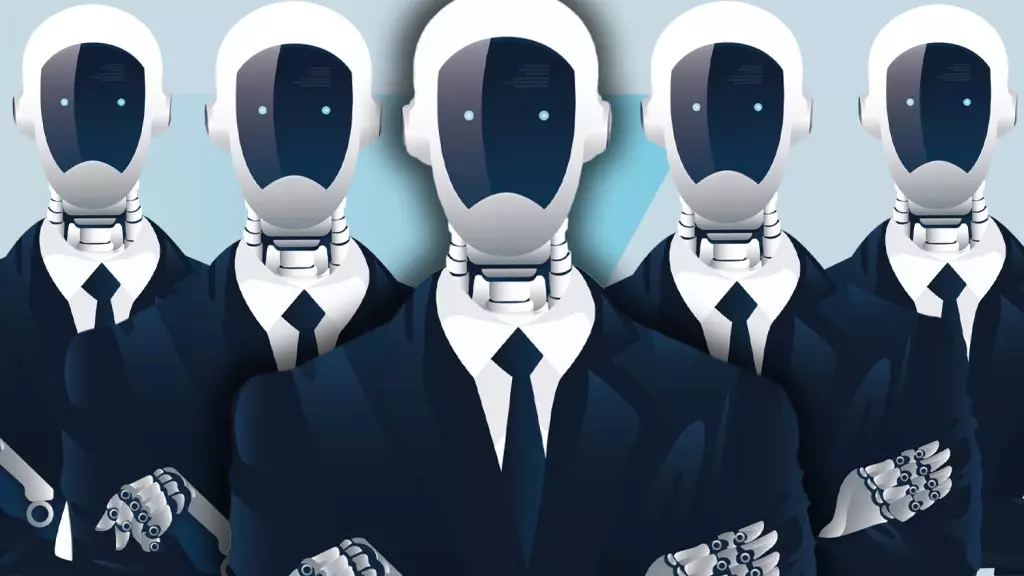The rise of artificial intelligence (AI) is transforming various sectors, and the entertainment industry is no exception. Recent developments have ignited a heated debate over the rights of actors in the age of AI, with unions like Equity stepping forward to defend their members against what they perceive as a potential infringement upon their personal artistic contributions. The UK actors’ union has taken a staunch position regarding the use of their members’ work in training AI models, warning industry leaders that they are prepared to escalate the matter to legal action if their rights continue to be undermined.
This stance arises amid concerns that the data and performance of actors are being exploited without their consent. Equity has articulated its grievances clearly in public statements addressed to major industry players including the BBC, Disney, and ITV. The increasing integration of AI tools into filmmaking, broadcasting, and even video gaming raises critical ethical questions that challenge the fabric of copyright and personal rights in creative professions.
Equity’s letter to industry executives underscores the union’s worries about “industrial scale theft” of actors’ data. The concern is that significant portions of actors’ performances—often enhanced by years of training and experience—are being appropriated for profit by AI companies without fair compensation or transparent practices. As the letter highlights, these organizations are entering into agreements that provide broad and unrestricted access to actors’ performances for the purpose of training AI systems. This not only risks the integrity of individual performances but also threatens the broader ecosystem of creative rights.
As AI continues to evolve, it demands a re-examination of existing frameworks like the Copyright, Designs and Patent Act 1988, along with GDPR regulations. These laws were not originally designed with the complexities of AI in mind, and as such, there is a pressing need for reform. Oftentimes, the unregulated use of actors’ work for AI training blurs the lines of ownership and distribution rights, potentially disenfranchising performers.
The Call for Transparency and Fair Compensation
Equity is calling for a grounded conversation aimed at preventing the exploitation of rights-protected content. Their requests emphasize that any future use of theatrical or performance content in the realms of AI should be met with robust practices surrounding informed consent, transparency, and fair compensation. The letter makes a compelling argument for the necessity of establishing clear guidelines and negotiations to ensure that all parties, particularly performers, are acknowledged and respected in these discussions.
Considering the scale and frequency with which AI can digest and mimic performances, the stakes are high. Actors have voiced concerns that their stylistic nuances may be replicated by AI systems, leading to a potential loss of uniqueness in their craft. This issue is particularly pronounced in the realm of voice artists, whose work can easily be synthesized, thereby undermining their livelihood.
Looking to the future, the potential for partnerships between unions, industry owners, and technology developers becomes crucial. Equity has signaled a willingness to engage in “constructive dialogue” with various stakeholders to create enforceable frameworks that protect performers while allowing the industry to benefit from technological advancements.
Such collaboration could take cues from recent initiatives like the UK government’s AI Opportunities Action Plan, which aims to foster growth while simultaneously safeguarding rights. It is vital for the entertainment industry to innovate responsibly and ethically, ensuring that the artists who breathe life into performances are protected against inappropriate usage of their portrayal.
As Equity proceeds with its negotiations with Pact—which are expected to extend through 2025—the collective memory of the rights issues surrounding AI will persist. The focus will be on ascertaining that actors, including dubbing and supporting artists, are afforded fair treatment amidst the rapid technological developments reshaping their industry. The outcome of these discussions could lay the groundwork for a future where both human creativity and technological innovation coexist in harmony.

